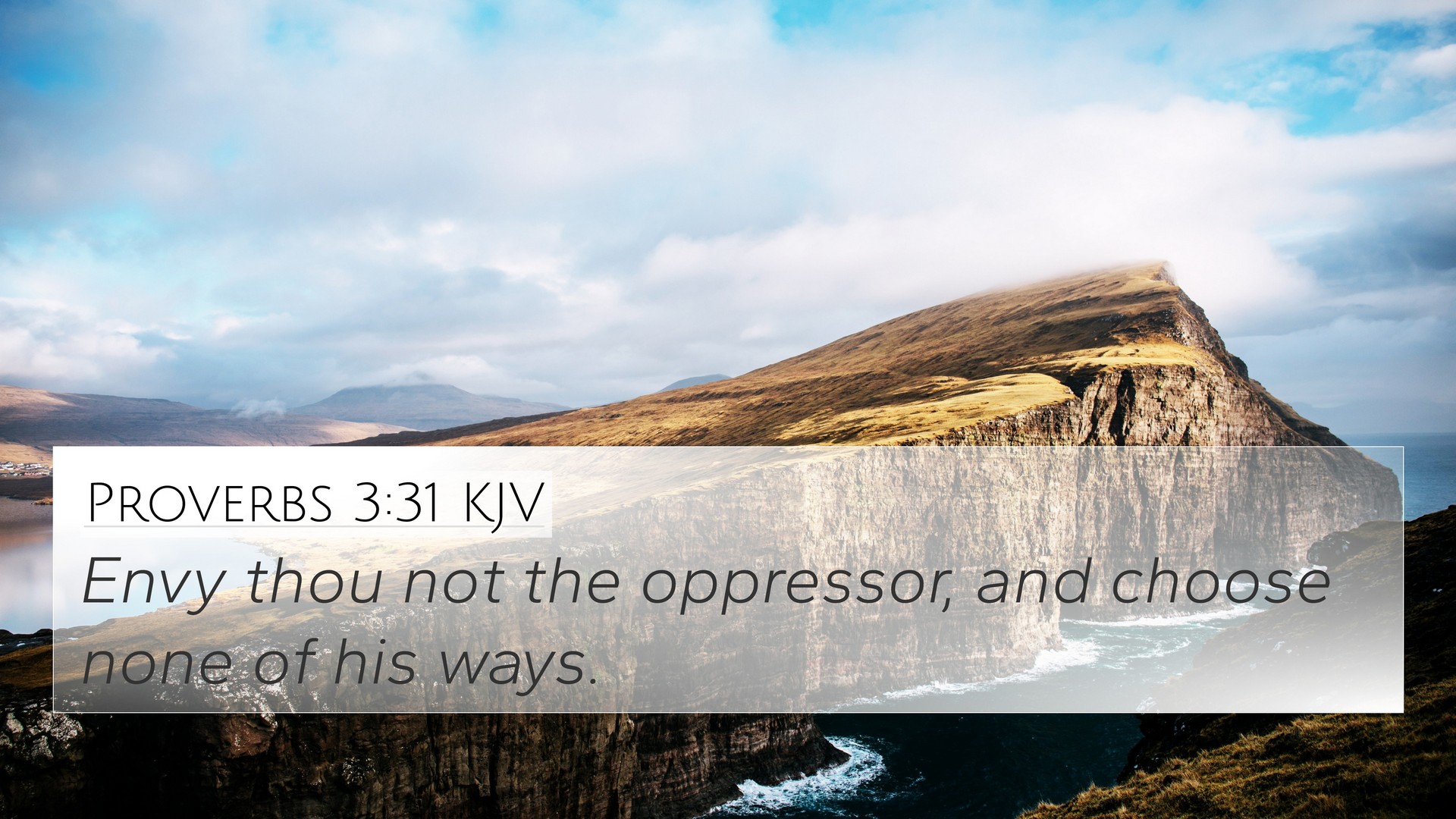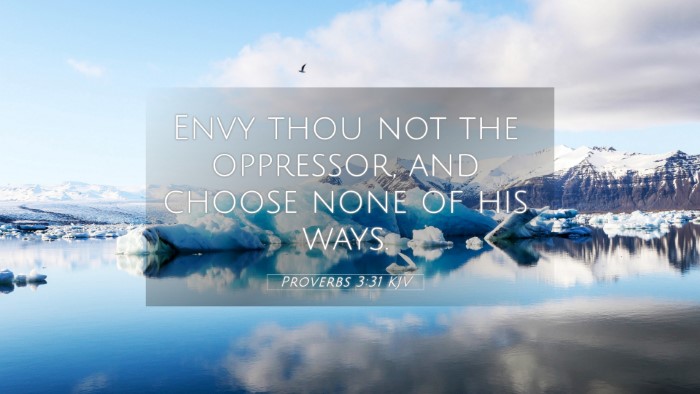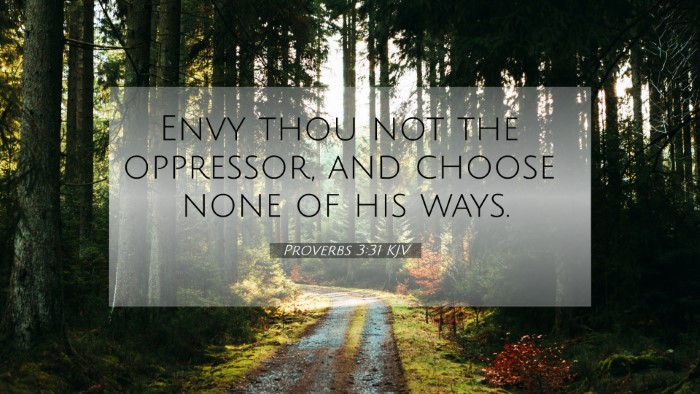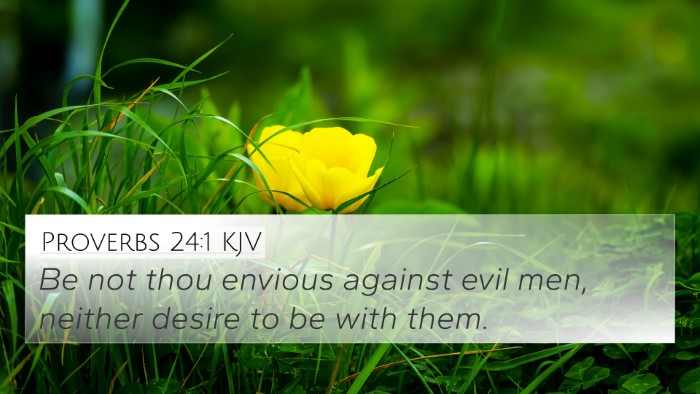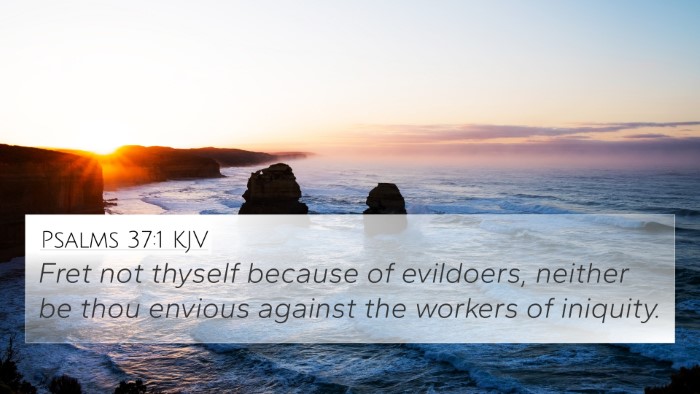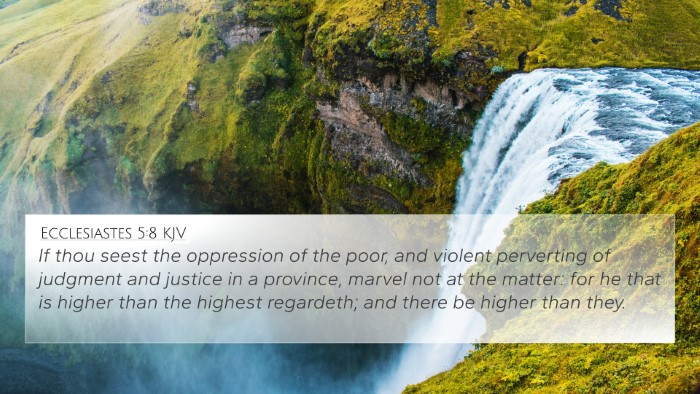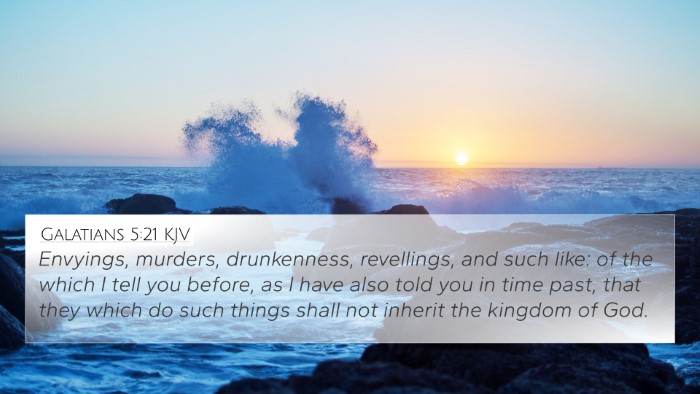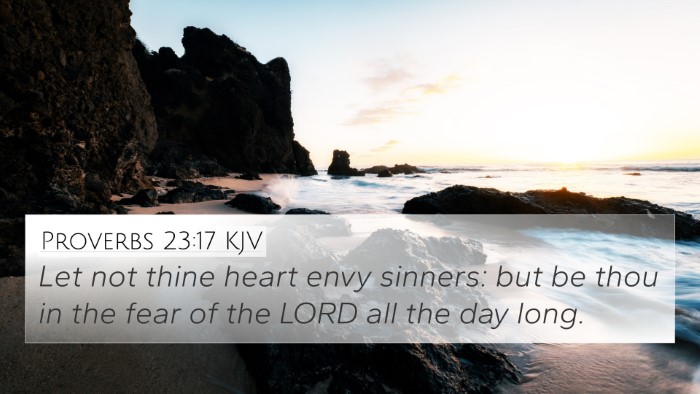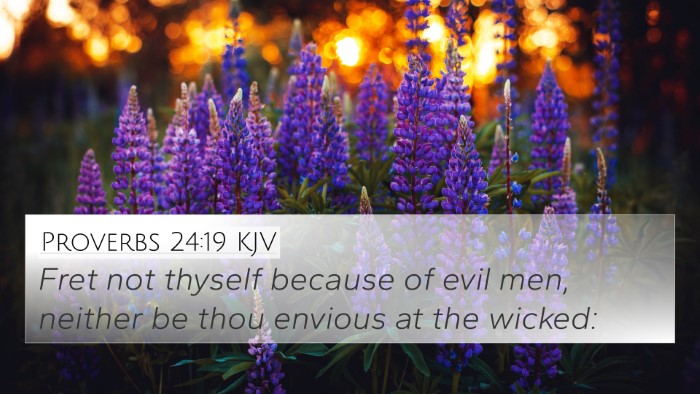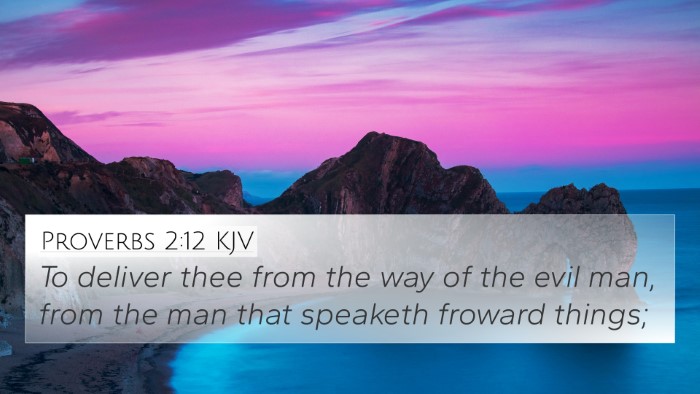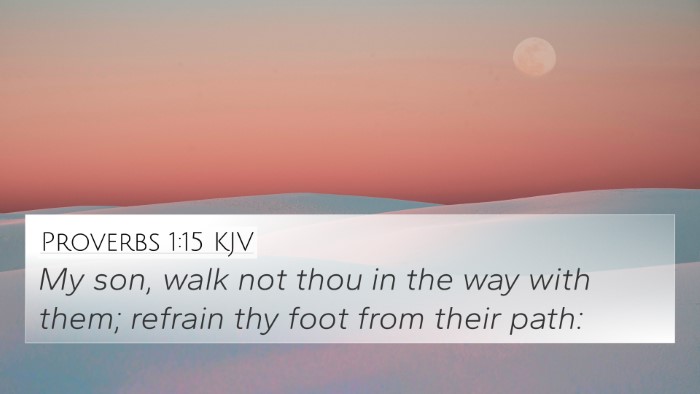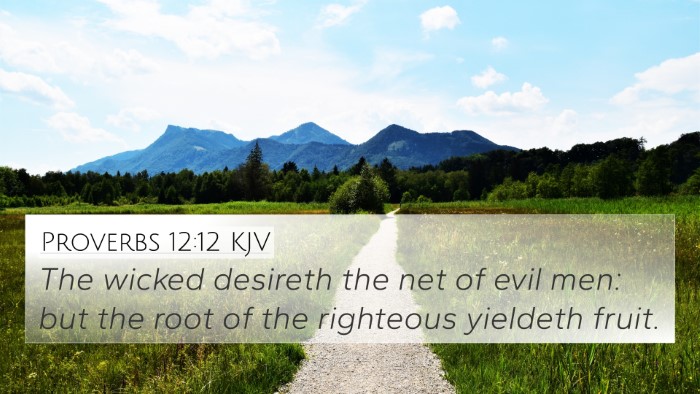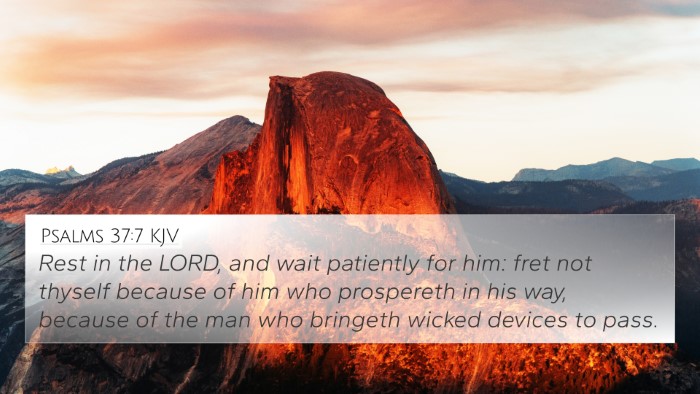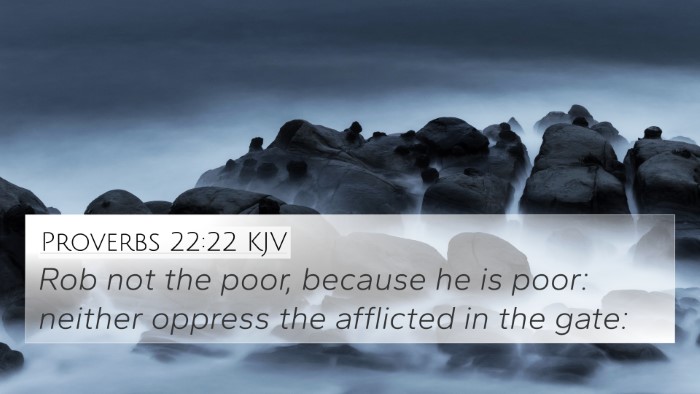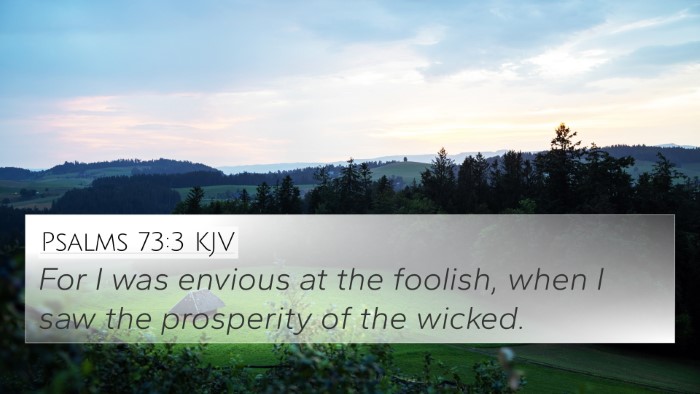Understanding Proverbs 3:31
Proverbs 3:31 states, "Do not envy a violent man or choose any of his ways." This verse invites deeper examination and contemplation regarding the nature of envy, the characteristics of violent individuals, and the broader implications of choosing a life shaped by such influences.
Commentary Insights
Matthew Henry's Commentary emphasizes the importance of moral discernment. He notes that envy towards those who are violent is both foolish and dangerous. The violent man can be seen as a metaphor for those who achieve success through unethical means, prompting a warning against aspiration to such paths.
Albert Barnes points out that the desire for the attributes of the violent often results in destructive outcomes. He explains that choosing the ways of a violent man is not merely about imitating behavior but also about adopting an entire value system that prioritizes aggression over peace.
Adam Clarke adds that this verse encourages believers to cultivate an attitude that is opposite to the traits exhibited by violent individuals. Instead of longing for what they represent, individuals are called to pursue righteousness and healthy relationships.
Key Themes in Proverbs 3:31
- Discernment: The verse underscores the need for wise choices in relation to influences we accept in our lives.
- Consequences of Envy: Envy, particularly towards moral failings, can lead to a destructive path contrary to divine wisdom.
- Violence vs. Peace: The direct contrast between violent ways and paths of peace highlights the biblical disdain for aggressive conduct.
Bible Verse Cross-References
This verse is interconnected with several other biblical teachings that reinforce its message:
- Psalm 37:1: "Do not fret because of evil-doers, nor be envious of the workers of iniquity."
- Proverbs 24:1: "Do not be envious of evil men, nor desire to be with them."
- James 3:16: "For where envy and self-seeking exist, confusion and every evil thing are there."
- 1 Peter 3:9: "Not returning evil for evil or reviling for reviling, but on the contrary blessing..."
- Proverbs 26:24-25: Talking about deceivers, "He who hates disguises it with his lips and lays up deceit within himself."
- Ephesians 4:31: "Let all bitterness, wrath, anger, clamor, and evil speaking be put away from you, with all malice."
- Romans 12:19: "Beloved, do not avenge yourselves, but rather give place to wrath; for it is written, 'Vengeance is Mine, I will repay,' says the Lord."
- Galatians 5:19-21: Lists the works of the flesh, including enmity and strife.
- Matthew 5:9: "Blessed are the peacemakers, for they shall be called sons of God."
- 1 John 3:15: "Whoever hates his brother is a murderer, and you know that no murderer has eternal life abiding in him."
Connections Between Bible Verses
The exploration of Proverbs 3:31 helps unveil themes that are recurrent across the Bible, such as the importance of ethical living and building communities characterized by love rather than strife. The guidelines found in the scriptural references suggest a call to transcend negative influences present in society.
Tools for Bible Cross-Referencing
For those interested in exploring more about cross-referencing biblical texts, consider utilizing:
- Bible Concordance: A tool providing a comprehensive index of the biblical text to locate specific terms and ideas.
- Bible Cross-Reference Guide: References that connect similar scriptures for comparative analysis.
- Cross-Reference Bible Study: A method of studying the Bible that focuses on identifying relationships between various scriptures.
- Bible Chain References: A technique that strings together related verses for thematic studies.
Conclusion
In essence, Proverbs 3:31 stands as both a warning and an exhortation. It encourages believers to remain grounded in virtue, pursuing justice and peace rather than being swayed by the allure of violence and envy. The exploration of cross-referenced passages enriches our understanding of this central theme, revealing a consistent biblical narrative that emphasizes the importance of ethical living and the pathways to true wisdom.
